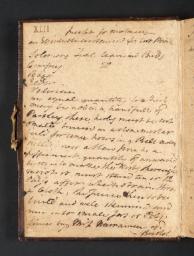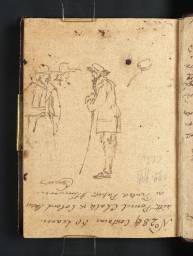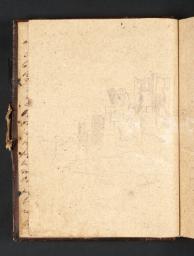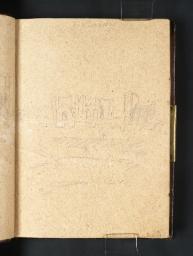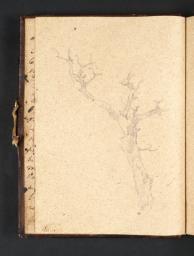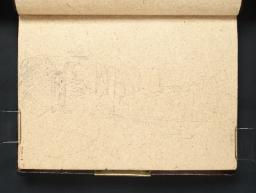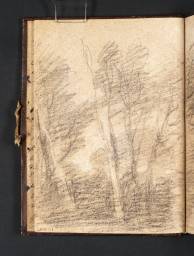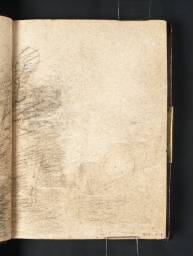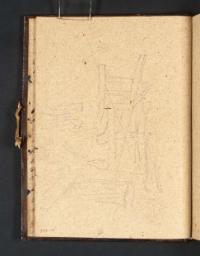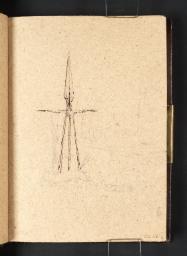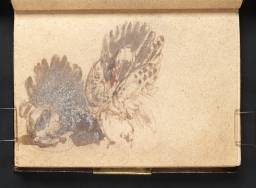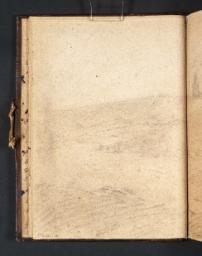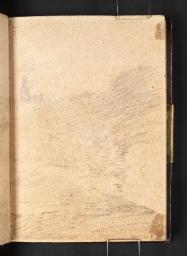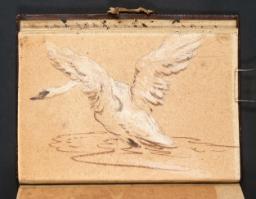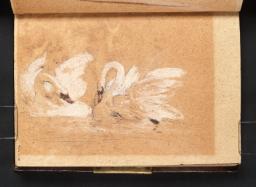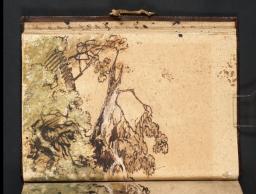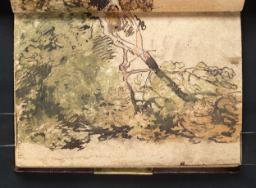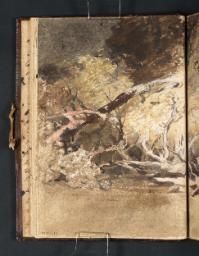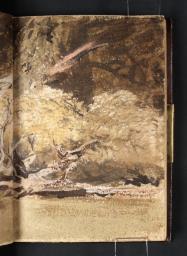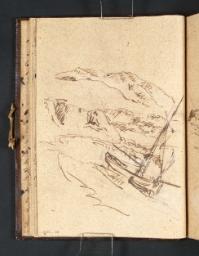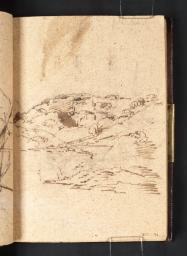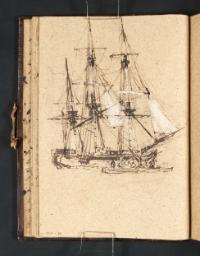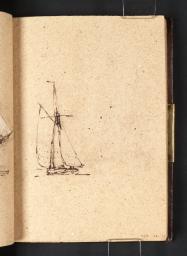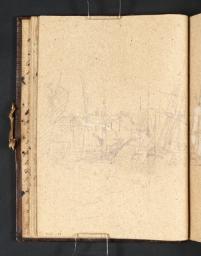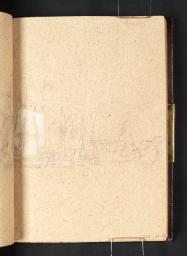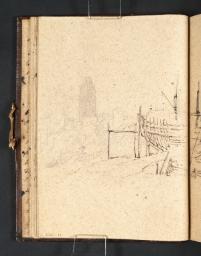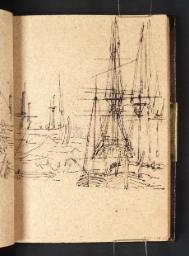Turner Bequest XLII 1–139
Sketchbook bound in boards covered in gold-tooled calf leather, with one brass clasp (broken)
70 leaves of coarse buff laid paper; page size 174 x 125 mm; watermark ‘5’
Numbered 289 as part of the Turner Schedule in 1854 and endorsed by the Executors of the Turner Bequest, on folio 1 recto (D01676; Turner Bequest XLII 1).
70 leaves of coarse buff laid paper; page size 174 x 125 mm; watermark ‘5’
Numbered 289 as part of the Turner Schedule in 1854 and endorsed by the Executors of the Turner Bequest, on folio 1 recto (D01676; Turner Bequest XLII 1).
Accepted by the nation as part of the Turner Bequest 1856
Exhibition history
References
One of five sketchbooks that Turner took with him to Wales in 1798,1 this was given its name by John Ruskin who extracted two sheets with drawings of swans for display in his early exhibitions of specimens from the Turner Bequest at Marlborough House, London (see later in the Introduction); Finberg records Turner’s own lost ‘label on back – “26. South Wales.”’2 Although it is on the whole more substantial than the Dynevor Castle sketchbook (Tate; Turner Bequest XL), another small sketchbook used on this tour, its contents are almost equally difficult to identify. It does provide evidence, however, of Turner’s homeward itinerary, since the drawing inscribed ‘Malvern Hills’ on folios 19 verso–20 recto (D01713–D01714; Turner Bequest XLII 38–39) appears to have been made on the road from Hereford to Tewkesbury.
The book was not used solely on the Welsh tour of 1798: several drawings belong to the time when Turner was working at Fonthill in Wiltshire on a commission from William Beckford (1760–1844) in 1799. Another commission that began to occupy him in the last years of the decade was that from Sir Richard Colt Hoare (1758–1838) of Stourhead, a Wiltshire neighbour of Beckford’s, for a set of views at Salisbury. Several books were in use in connection with these projects, and there are drawings in the Swans book that relate to his activities in Wiltshire rather than in Wales, notably the drawings of swans after which Ruskin named the book. Further studies of swans occur in the Salisbury sketchbook (Tate; Turner Bequest XLIX), and they are accompanied, as here, by drawings of turkeys. It would be surprising if Turner had wished to make studies of the birds in two separate books on the same occasion, but the overlapping of purposes in the sketchbooks used on any given tour is often baffling. Whereas we cannot often be certain of the order in which Turner used his books, there is at least some evidence here that Ruskin himself did not break this one up for the purposes of exhibition. Finberg records Ruskin’s comment on an associated wrapper: ‘No 289. Invent. Two leaves with swans cut out for M. H. [Marlborough House]. A book of great interest. Should not be cut up.’3
In this book for the first time – though the Salisbury book may be exactly contemporary – Turner’s burgeoning interest in poetry manifests itself. He availed himself of the Royal Academy’s new rules on the incorporation of literary citations in catalogue entries as soon as they were promulgated, in 1798, appending quotations from John Milton and James Thomson’s Seasons to several works in both oil and watercolour that year. He was to continue doing so all his life, often availing himself of lines of his own composition. These begin to appear as early, perhaps, as 1800 with two quotations about medieval Welsh history. Later, they were to be attributed to a ‘manuscript poem’, The Fallacies of Hope,4 on which Turner worked with varying degrees of intensity over many years. In these early books some verses appear already to be his own, but others are copied from popular songs and ballads of the day; see the entry for the inside of the back cover (D41426).5
Technical notes
How to cite
Andrew Wilton, ‘Swans Sketchbook 1798–9’, sketchbook, March 2013, in David Blayney Brown (ed.), J.M.W. Turner: Sketchbooks, Drawings and Watercolours, Tate Research Publication, April 2015, https://www

